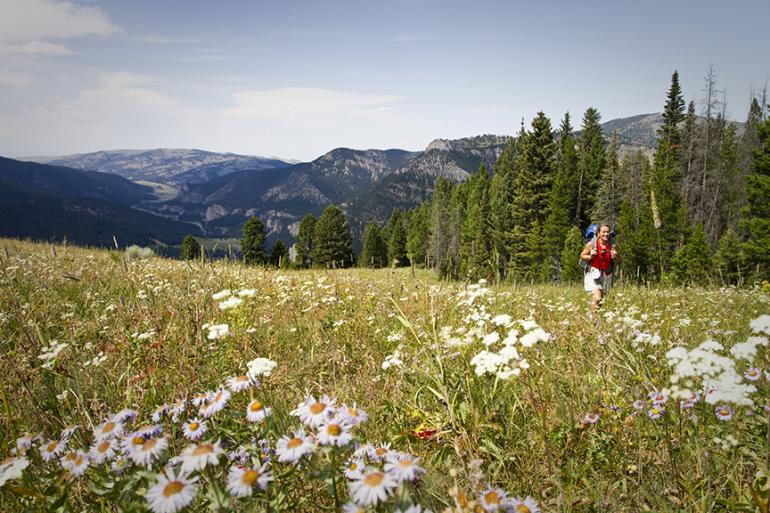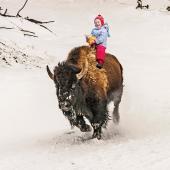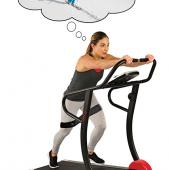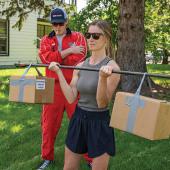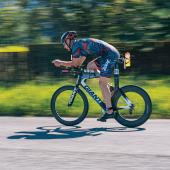Move It Or Lose It
Physical activity has many benefits.
It’s often said that laughter is the best medicine, and while there’s no doubt that a bit of mirth can be good for the soul, it won’t do much to solve the health problems plaguing 21st-century Americans. Fortunately, there is a natural panacea that can legitimately claim that title (and it’s not grown deep in the Amazon). For most of human history, our species has needed to be physically active to survive, and now medical research is increasingly showing that regular physical activity has a plethora of both physical and mental health benefits.
Although I was raised in Bozeman, I spent a few years in my late 20s and early 30s living in St. Louis, Missouri. I had always been fairly active, growing up skiing, hiking, and rock climbing in the Gallatin Valley, but it’s not so convenient to get outside and get the heart rate up in Missouri. I’d been spending a lot of time working and hadn’t been taking the time to exercise like I normally do.
One evening, exhausted from a stressful and lengthy day at work, I forced myself to put on my running shoes and hit a local path. I arrived back at my car an hour later, breathing hard, but with a clear mind, a surprisingly improved mood, and a lot more energy than when I walked out of the office door. It made me think that exercise was not simply a leisure activity to do when I could justify the time, but something my mind and body genuinely needed.
The latest medical research is confirming that my predilection for more movement and less stasis is not just a personal obsession. While it’s common knowledge that exercise can help you lose weight, studies have shown that those who exercise more have strengthened immune systems, and are at lower risk for heart disease, diabetes, cancer, and dementia. Surprisingly, regular exercise can decrease one’s risk for most of the above-mentioned medical problems even without weight loss. One extensive study calculated that worldwide, physical inactivity is likely to be responsible for 5.3 million premature deaths annually. Another study, looking at over 10,000 Harvard graduates, found that those who engaged in regular “vigorous” physical activity had a 23% lower risk of death compared to their inactive cohorts.
Getting out for a run or ski can also reduce symptoms of depression and anxiety. The link between improved mood and physical activity is not entirely clear, but it’s likely that the sought-after runner’s high plays a role. In particular, aerobic exercise is known to release endorphins (the brain’s “feel good” chemicals), helping boost your mood and reduce anxious thoughts (as an aside for all you dog owners out there, there is even evidence that your dog enjoys romping up Peets Hill because of the endorphin “high” she gets afterwards). Regular exercise has been found to improve sleep and reduce stress levels, both of which can help improve your mood.
The fact that exercise has such a comprehensive effect on our overall health suggests that our bodies need to move to function appropriately. Sadly, being physically active is the exception rather than the rule in our culture. Since we don’t have to move to survive on a daily basis, physical activity is often seen as just another leisure activity for the more disciplined folks out there, rather than an integral part of being a whole human being. Changing this mindset may be one of the most important tasks the medical community faces.
Fortunately, the Gallatin Valley is conducive to being active, both geographically and culturally. Whether you prefer the trail or the gym, Bozeman has no shortage of opportunities to feed your need to exercise. If you’re not very active, it’s never too late to start moving and prepare for a healthier, happier, and probably longer life. If you’re the stereotypical Bozemanite and already spend a lot of time being active, feel good about the fact that the money you just spent on a new pair of running shoes or bike may actually be saving you unnecessary medical expenses in the future.
Peder Anderson is a family physician who feels lucky to have grown up in Bozeman, and even luckier to be back after half a decade exiles to the Midwest.

